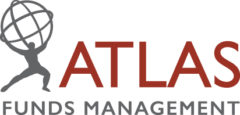Bonanza for insurance stocks tipped to cool as premium growth slows
Investors in insurance giants made bumper returns in 2024. But analysts say conditions will be less favourable this year as the pace of price rises slows.
Author: Hugh Dive
Dogs of the ASX: did they bark or bite in 2024?
The Search for Yield: Liquidity and Transparency
| At the beginning of this week, we saw APRA release its decision on the $43B Hybrids market. Hybrids have been an instrument used primarily by banks to increase Tier 1 Capital levels and were a combination of debt and equity, hence the name “hybrid”. In this week’s piece we are going to look at the bank hybrids market, a popular investment category that has grown to be worth $43 billion since first being offered to retail investors in 1998.  |
| High Yield Debt or Low Yielding Equity? Can I have Franking with that please! Investors, in particularly retirees, were attracted to hybrids for their attractive yield and the 100% franking that came with it. The instruments pay a set rate of interest typically between 6-8% but can be converted to shares or even written off entirely in times of balance sheet stress. The decision from APRA was to phase out Additional Tier 1 (AT1) capital instruments over the next 8 years. It was deemed, post the Credit Suisse collapse where holders of the Credit Suisse hybrid got wiped out, that there are more effective, cheaper forms of capital available to the banks and less risky options for the mainly retail holders of hybrids in Australia. What APRA said Here is part of the reasoning from APRA Chair John Lonsdale: “Capital is the cornerstone of the banking system’s ability to withstand financial stress,” he said. “While Australia’s banks are unquestionably strong, overseas experience has shown AT1 doesn’t operate as intended during a crisis due to the complexity of using it, the potential for legal challenges and the risk of causing contagion.” It is worth noting that the destruction in capital required to trigger a conversion to equity or for APRA to force the issuer’s hand to convert to equity would be unprecedented in recent history. One would expect that even the nadir of the 1991/1992 recession, which saw the largest level of impaired loans in living memory, would not destroy enough capital to trigger a conversion (see above). Arguably, the banks are better managed in 2024 than they were in 1992 when Westpac almost collapsed after both poor lending practices to entrepreneurs and the different arms of the bank being unaware that they both lend to the same borrower. This resulted in Westpac reporting a loss of $5 billion, almost wiping out the $6.7 billion of capital the bank had to support a loan book of $100 billion! The truth does remain that it is likely that an investor (and in Australia the bulk of hybrid investors are retail) would be converted into stock in a rapidly falling market if the solvency of one of the issuers was put in question as we saw globally in 2023 with Credit Suisse, Signature Bank and Silicon Valley Bank. This appears to the driver of APRA’s decision here. Another factor in the decision making process may be the franking credits accrued each year by the hybrid market costing the ATO $1B annually. Existing hybrids on issue are due to expire in 2032 and there will be a gradual wind down between now and then. $43B Income Focused dollars looking for a new home Income allocation as a percentage of investors’ portfolios has typically been under-invested in Australia with a non-retail friendly bond market and few income products that offered liquidity and transparency. That said, growth has been large over recent years, in particular the private credit market (see charts below), which has more than doubled in 4 years and is conservatively put at $40B by the RBA but is seen as large as $188B by EY when increasing the definition of private credit. Hockey Stick Growth in Illiquidity and Opacity   The relatively recent rise of the private debt markets in a time of abundant capital and limited stress has been noteworthy and from a risk perspective somewhat concerning. Does the investor know where the exposure lies and do they have the ability to exit if the good times don’t roll forever for the issuer or the greater economy generally? The answer to these 2 questions most likely lies between “maybe” and “no”. The relatively recent rise of the private debt markets in a time of abundant capital and limited stress has been noteworthy and from a risk perspective somewhat concerning. Does the investor know where the exposure lies and do they have the ability to exit if the good times don’t roll forever for the issuer or the greater economy generally? The answer to these 2 questions most likely lies between “maybe” and “no”.Where can I find regular income? And yes, franking is still available The Australian Equity market is a high yielding market and for Aussie earners still offers franking which is unique to Australian investors and in our opinion undervalued. Despite recent stretched valuations the ASX200 is currently averaging a yield of 3.2% vs a long term average of 4.5% and is a well-regulated and transparent market that offers liquidity. |
| Our take: The Atlas Australian Equity Income Fund aims to harvest income of 7%-plus before franking and comes with transparency and liquidity. The portfolio is currently forecasting a dividend yield of 4-4.5% (before franking) and further income from the implementation of its Buy-Write strategy which the fund employs. Two sources of yield are delivered by the funds concentrated portfolio of ASX stocks – Dividend Yield and “Premium Yield” (premium received by selling calls against the portfolio holdings). Along with some capital appreciation and we expect to deliver double-digit returns for our investors before any franking you may be entitled to. |

